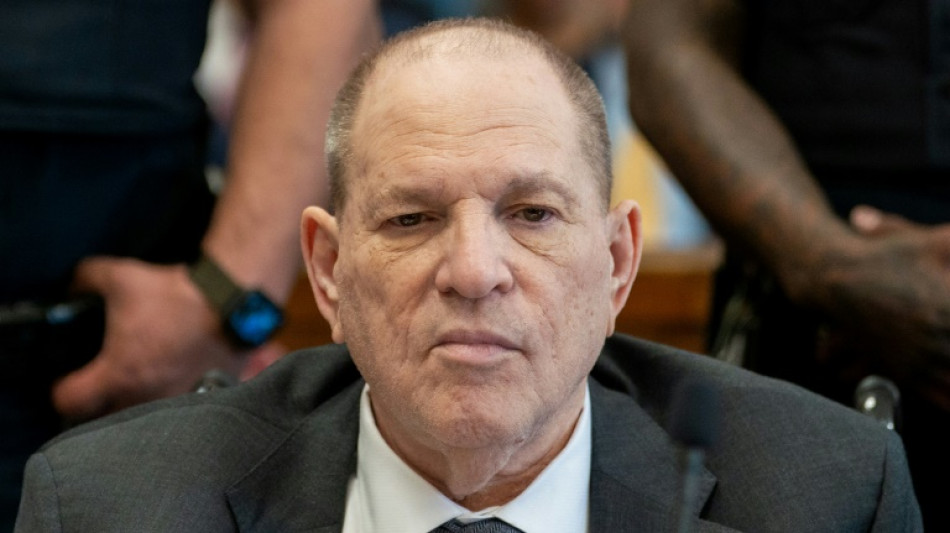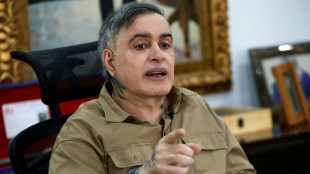

Weinstein lawyer brands accusers 'women with broken dreams'
The lawyer defending fallen Hollywood mogul Harvey Weinstein from rape and sexual assault charges called those testifying against his client "women with broken dreams" as he made his final pitch to jurors.
A New York state appeals court had thrown out Weinstein's 2020 convictions after irregularities in the presentation of witnesses at his original trial, forcing two victims of his alleged abuse to testify a second time.
"If there is a doubt about their case, you gotta throw it out. These are the people they want you to believe, they're all women with broken dreams," defense attorney Arthur Aidala said of the women who testified against Weinstein at this trial.
Prosecutors will make their case to the jury later Tuesday, and judge Curtis Farber will then give instructions to the jury, whose deliberations could begin on Tuesday or Wednesday
Weinstein, the producer of box-office hits "Pulp Fiction" and "Shakespeare in Love," has never acknowledged wrongdoing.
The cinema magnate, whose downfall in 2017 sparked the global #MeToo movement, has been on trial again since April 15 in a scruffy Manhattan courtroom.
He is serving a 16-year prison sentence after being convicted in California of raping and assaulting a European actress more than a decade ago.
Two of the accusers in this case -- onetime production assistant Miriam Haley and then-aspiring actress Jessica Mann -- testified at Weinstein's original trial.
Their accounts helped galvanize the #MeToo movement nearly a decade ago, but the case is being re-prosecuted at a new trial in New York.
His 2020 convictions on charges relating to Haley and Mann, and his 23 year prison term, were overturned last year by the New York Court of Appeals.
The tribunal ruled that the way witnesses were handled in the original trial was unlawful.
- 'He didn't listen' -
Some 20 years after the earliest incidents were alleged to have taken place, Aidala sought to cast doubt on the credibility of the accusers.
He said it was not a question of whether his client engaged in sexual relations with the three women, but that those encounters were consensual.
He described the encounters as "transactional" and "casting couch" scenarios involving young women who used their beauty and charm to make an older man open doors for them.
Weinstein was the one they used, he argued, countering prosecutors who portrayed Weinstein as an all-powerful Hollywood figure.
Aidala loudly reeled off metaphors to explain his version of events, seeking to win over the jury with jokes.
He mimicked the victims to highlight inconsistencies, likening one of them to a child caught in a lie.
The veteran defense attorney stressed that victims continued to associate with Weinstein after the alleged assaults, something they did not dispute, explaining that they feared jeopardizing their careers.
During the trial, the three victims testified that their sexual encounters with Harvey Weinstein were not consensual.
The retrial also heard new evidence from Kaja Sokola, a Polish former model who testified that Weinstein first sexually assaulted her when she was a minor at age 16.
She said one occasion Weinstein pushed her onto a bed and forced her to have sex.
"I told him to stop," she said, "but he didn't listen."
Weinstein has appeared daily in a wheelchair, physically subdued, but laughing and joking with his legal team.
This time, hearings have received less media attention, taking place in the shadow of the highly anticipated trial of hip-hop mogul Sean "Diddy" Combs, on trial blocks away at federal court on charges of sex trafficking and racketeering.
R.Billman--VZ


